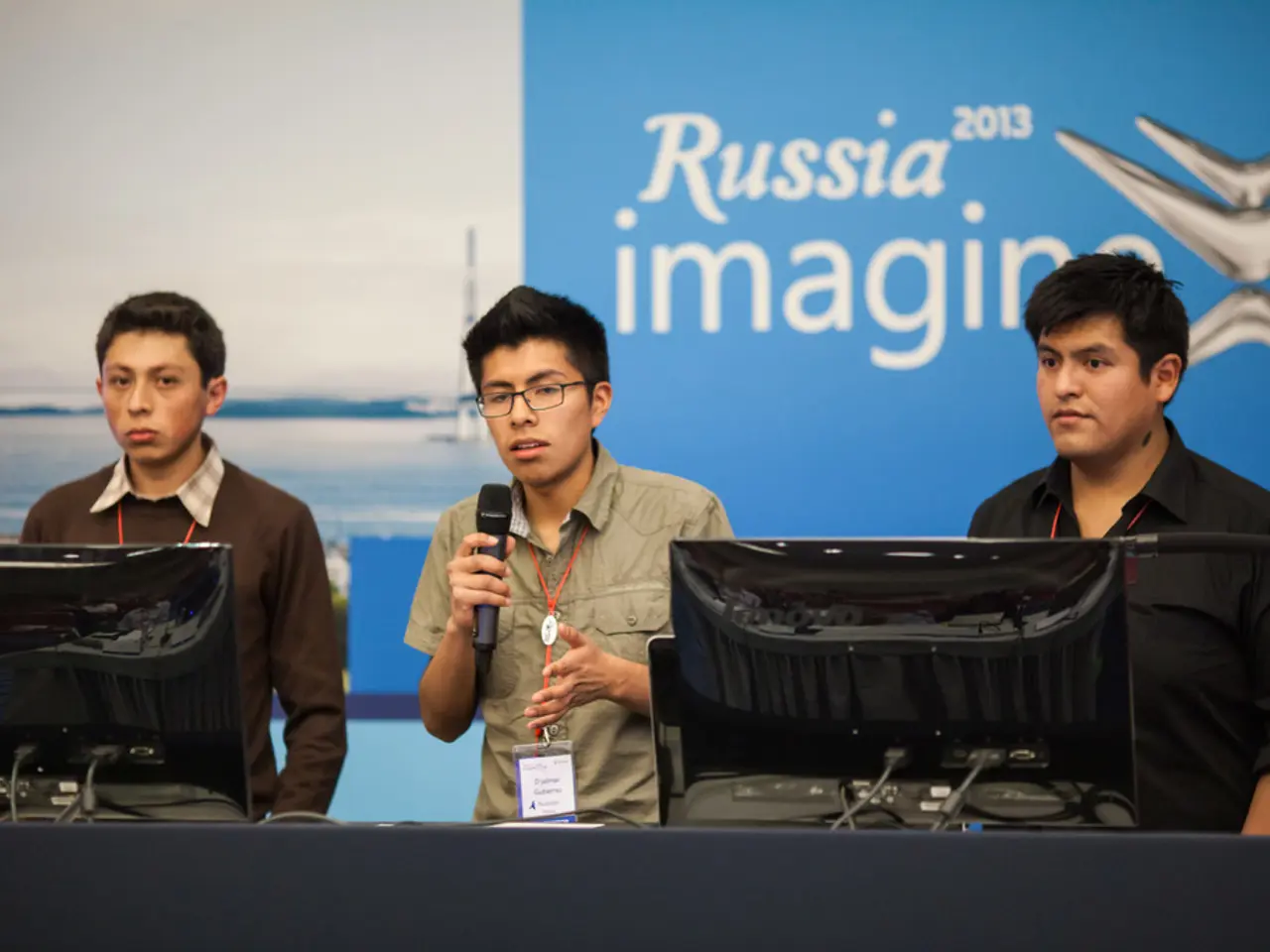International leaders in Europe voice backing for Ukraine, upcoming Trump-Putin meeting scheduled for the week ahead
In a significant show of solidarity, European nations, including France, Germany, Italy, Poland, Finland, and the United Kingdom, have united in support of Ukraine. This alliance comes as peace talks between Ukraine and Russia escalate, with both sides holding firm to their respective positions.
Ukrainian President Volodymyr Zelenskyy has made it clear that Ukraine will not cede any territory without a constitutional process, stating that any withdrawal would be unconstitutional and could enable future Russian attacks. This stance contradicts previous discussions where Ukrainian officials considered a peace agreement that effectively recognised Ukraine's inability to recover lost territories.
The specific terms proposed by Russia for a peace agreement include Ukraine declaring neutrality between Russia and the West, abandoning its NATO membership bid, and limiting the size of its armed forces. Russia also demands international legal recognition of its annexation of Ukraine’s Crimea (2014) and the four regions annexed in 2022: Donetsk, Luhansk, Zaporizhzhia, and Kherson.
Russia insists Ukraine withdraw forces from these regions, effectively conceding control of Donetsk Oblast fully to Russia, which Putin strongly demands. Ukraine must also recognise Russian as an official language on par with Ukrainian. Furthermore, Russia wants Ukraine to outlaw "glorification and propaganda" of what it labels as Nazism and neo-Nazism, as well as dissolve nationalist groups.
A ceasefire proposal includes freezing frontline positions, notably Russia would halt offensives in Kherson and Zaporizhzhia if it gains full control of Donbas (Donetsk and Luhansk regions). However, Ukraine's position remains firm in rejecting any surrender of territory in Donbas or other regions.
The US, particularly under former President Donald Trump, appears more receptive to Russia’s demands than prior Western policy. Trump has shown support for Russia’s territorial demands, backing Putin’s proposal for Russia to take full control of Donbas and freezing front lines elsewhere. Trump advocates moving directly to a peace deal rather than a ceasefire.
Mainstream European leaders, however, remain skeptical and wary of Putin's intentions. German Chancellor Friedrich Merz has urged Washington to toughen sanctions against Russia, stating that Putin only acts under pressure. The European Union’s top diplomat, Kaja Kallas, has condemned Putin’s approach as a delaying tactic to prolong conflict without genuine commitment to peace.
As negotiations continue, Ukrainian President Volodymyr Zelenskyy has thanked European allies for their support and called for a just peace. The path to peace in Ukraine cannot be decided without Ukraine, according to the European leaders. Ukrainian President Zelenskyy has also declared that Ukraine will not cede territory to Russia.
The meeting between US President Donald Trump and Russian President Vladimir Putin is scheduled to take place in Alaska. Ukrainian President Zelensky's senior advisor, Andriy Yermak, has stated that Kiev will strive to improve its position before the planned meeting between Trump and Putin.
This news marks a critical juncture in the ongoing conflict between Ukraine and Russia, with European nations and the US playing significant roles in the peace talks. The future of Ukraine hangs in the balance as both sides navigate the complexities of peace negotiations.
- The ongoing war-and-conflicts between Ukraine and Russia have become intertwined with politics, as the specific terms proposed by Russia for a peace agreement reveal, such as Ukraine declaring neutrality, abandoning its NATO membership bid, and limiting the size of its armed forces.
- General news outlets are closely monitoring the politics involved in the peace talks, with Ukrainian President Volodymyr Zelenskyy expressing his firm stance that Ukraine will not cede any territory, contradicting previous discussions and potentially jeopardizing potential peace agreements.





